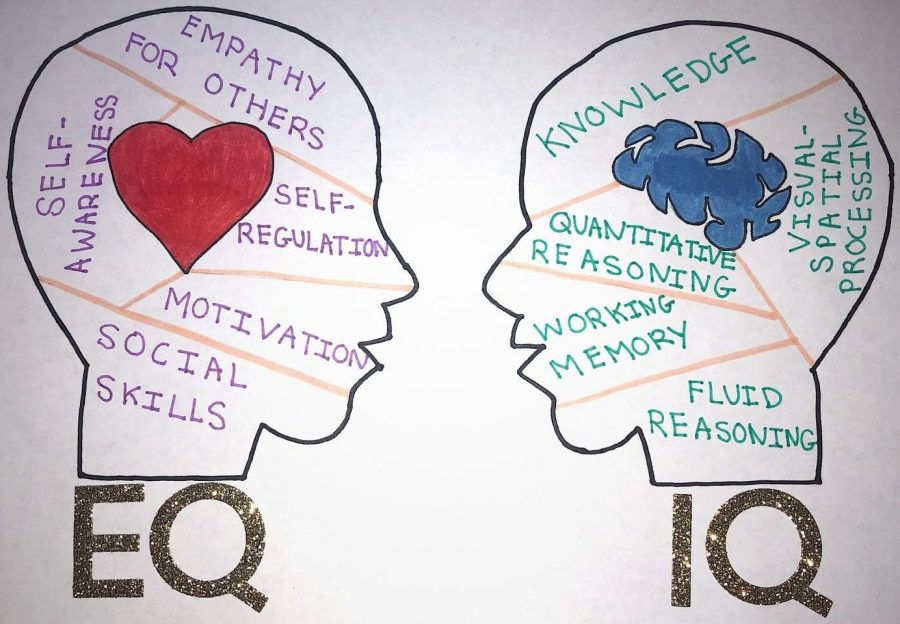A world filled with robots.
That’s what competitiveness, the internet, and lack of empathy for others are causing us to become.
Many of us stay up all night studying because we are overly-determined with our educational goals, and we spend most of our time memorizing information. We focus more on being accepted into prestigious universities, causing us to be remembered as the “smart friend.” We tend to forget some of the best things in life: maintaining real friendships and being there for each other.
In times of worldwide chaos, such as the current pandemic of COVID-19, we need to turn to each other for emotional support. Understanding the importance of one’s emotional quotient (EQ) is the secret to living a healthy and balanced life.
Don’t get me wrong; one’s intelligence quotient (IQ) is important in making executive decisions and being overall successful. Our IQ factor can help us with daily tasks, such as managing money and gaining knowledge. However, EQ is beneficial for things such as social skills.
During my freshman year, I took a leadership class where I learned about the different personality styles and Q-ratings witnessed in great leaders. I learned that although influential leaders have a mix of both EQ and IQ, EQ is what will gain supporters and create a welcoming environment.
When thinking about some of our favorite leaders in our lives, whether it’s our parents, teachers, or coaches, we often admire those that demonstrate empathy towards us and those we can build strong relationships with.
If coaches only focused on winning strategies and disregarded how their players felt, the team would be unmotivated, and the players wouldn’t enjoy playing their sport anymore. We love the coaches who support us, make us feel good, and allow teams to bond.
We remember leaders such as Nelson Mandela for fighting for social rights and uniting different groups of people. His high EQ, seen in his empathy towards others, allowed him to be loved and eventually become the first African American President of South Africa. He was not a genius with a high IQ, but he still dramatically changed history for the better.
Martin Luther King Jr. was another influential leader who fought for civil rights in America and later won a Nobel Peace Prize. He was a strong leader because he aimed for peace and appealed to others’ emotions.
Our world needs strong leaders that will not only solve the task but inspire others to do the same. We need leaders who listen and care about us.
According to a study done by the World Economic Forum, emotional intelligence was ranked in the top 10 most important workplace skills that are looked at when selecting potential candidates for jobs. This means that easily adapting to situations and showing great teamwork skills are favored over being solely result-oriented.
Our emotional intelligence allows us to be informed of our emotions, form close relationships, and make those around us feel good. Developing a high IQ is essential for gaining knowledge, but in the long run, leaders should prioritize EQ to genuinely make an impact.
Life is too short to spend all of your time memorizing information and forgetting to check up on each other. Do something nice for your friends, thank your parents for their support, and let your EQ grow.
Watch how the world will start to become more colorful.











